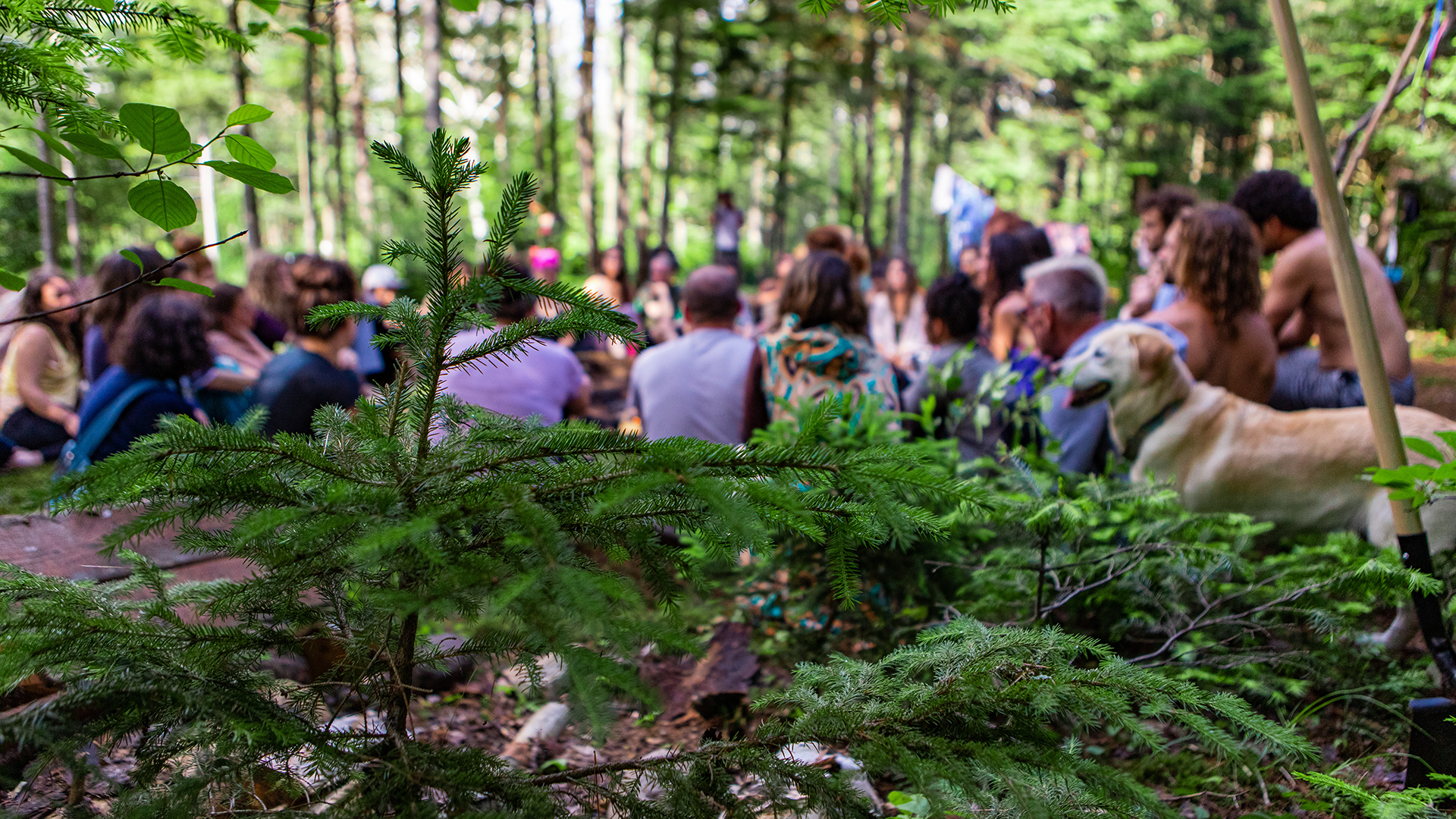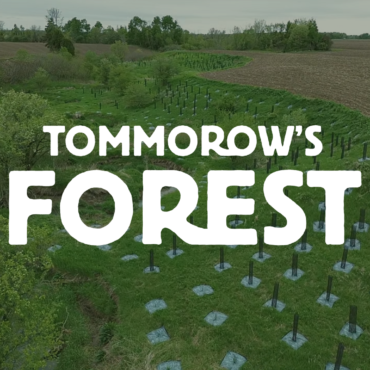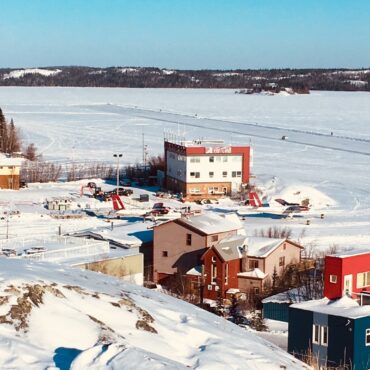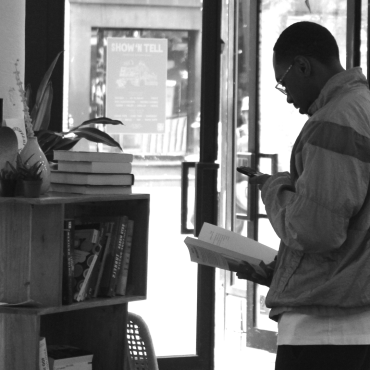Blog & News
Aiming for Action

Our Aiming for Action program rewards two people between the ages of 14 and 30 for their valuable efforts and achievements advocating for the environment with a grant of up to $2,000, among other prizes. Registration is open until February 10th! Isabelle, recipient of the award in 2021, invites you to dive into the world of eco-emotions to better adapt to environmental changes!
Last time I shared with you how I learned to read my emotions to adapt to the climate crisis. As a sequel, I’m sharing with you today how I learned to calm my nervous system, live better every day and build up my resilience.
In the context of a climate crisis and unprecedented social changes, it is perfectly natural to experience difficult emotions like fear, anger or sadness. We are inundated with information and images reminding us that we’re in the middle of a crisis and that our society will have to evolve in order to adapt to the planet’s changes; more frequent floods, forest fires, heatwaves, increasing social inequalities, difficulty in accessing resources, etc.
As we have experienced with the COVID-19 pandemic, a global alarm situation can, for many people, arouse a great deal of anxiety, since our body and brain are not prepared for such drastic changes or for processing prolonged periods of uncertainty.
That’s why, in the current context of a socio-ecological crisis, I believe it to be imperative that everyone learns to calm their nervous system as much as possible in order to access their creativity and build up their resilience.

A better understanding of your nervous system to get through the crisis more peacefully
Our nervous system has two modes: parasympathetic and sympathetic. In the sympathetic mode, the body produces cortisol, the stress hormone; the body is alert and focused only on performing to survive. In the parasympathetic mode, the body is in regeneration; neurotransmitters such as serotonin and oxytocin are released to regulate emotions and to promote social connection.
First address the crises within, then the social crises without
So how do you self-soothe in times of crisis? Here are a few suggestions that I myself have been using that I teach in the Eco-motion workshops and training:
• Recognize when you’re in survival mode: a lump in your stomach, irritability, impatience, impulsivity, tension and headaches. Being aware of this creates space to do things differently.
• Crying and releasing anger is healthy: the body needs to release tension; it’s an adaptive way to cope with external stress. Don’t be embarrassed to do this; lead the way in normalizing these necessary emotions, especially in today’s global environment.
• Trust your emotions: if you let them flow through your body without resistance, they will subside within minutes. The brain does not need much time to analyze their messages. It’s only when they’ve been suppressed that they change behaviour and perceptions over time.
• Spend some alone time: taking a step back from stressful situations is essential to calm the nervous system and create a safe space for your brain to problem solve.
• Spend time with people who share the same concerns as you: whether they’re in your circle of friends or people involved in the community, social ties are essential to support you in this transition.
• Spend time in nature or bring it to you: the benefits of nature on calming the nervous system are well known; I also think that frequent contact with nature at home is necessary to remind us of what is important and to take action to get closer to our values.
If your nervous system is constantly on high alert, not only will you risk burning out, you also won’t be able to come up with innovative solutions to help you adapt, nor will you be able to help those around you do so.

What to do when confronted with differing needs, opinions, or perceptions?
How do you address these issues with your children, family, friends and colleagues? At Eco-motion, powerlessness and efficacy are often brought up. Certain communicative skills are necessary to develop in order to feel more understood, for your needs to be considered, and to feel effective in your actions to create the vision of the world that best suits you.
Here are my suggestions to better understand one another and thus mobilize more effectively:
• Try more needs-based communication: Why is it important for you to take action? What is the source of your concerns? What kind of world do you want to live in? Share these thoughts with each other and ask these same questions to broaden your perspective and develop empathy.
• Be attentive to the non-verbal communication of the person speaking to better understand their inner world and synchronize with them so that the outcome of your discussion is satisfying for all parties.
• We need connection to self and others as much as we need independence and action. Keep this in mind when interacting with someone and be clear about your intentions: Do you want to mobilize your energy and that of the other person towards a common goal, or do you want to release stress and connect with the other person to recharge your batteries?
These psychosocial skills are, in my opinion, essential for dealing with the social and environmental crises taking our communities by storm. Another key point I want to emphasize in concluding this reading is that experiencing ups and downs is quite normal, especially in a crisis. It is the impermanence of life; we’re all a part of it.
In my final article, I will answer your questions related to eco-emotions like eco-anxiety and attitude and behaviour change. To ask your questions, just comment on the following post on Facebook or Instagram. I’ll take the opportunity to offer you coaching solutions to continue your adaptation journey in a community that understands and supports you.

Aiming for Action 2021 Laureate
Isabelle Béliveau
Isabelle is interested in social psychology, neuroscience and ecoemotions and aims to offer a new approach to speaking about the climate to reduce avoidance and powerlessness. She holds a bachelor's degree in Environmental Studies and is a climate change activist. She was the coordinator of CEVES Sherbrooke and founded the non-profit organization Éco-motion, whose mission is to support individuals and organizations in developing their resilience to socio-ecological changes.
View all posts...Related posts :
Contact us
Earth Day Canada
5818, boulevard Saint-Laurent
Montréal (Québec) H2T 1T3 Canada
Phone : (514) 728-0116
Toll free : 1 800 424-8758
Fax : (514) 303-0248
Email: hello@earthday.ca
2025 © Earth Day Canada. All rights reserved.
Privacy policy · Terms of use · Trademark









